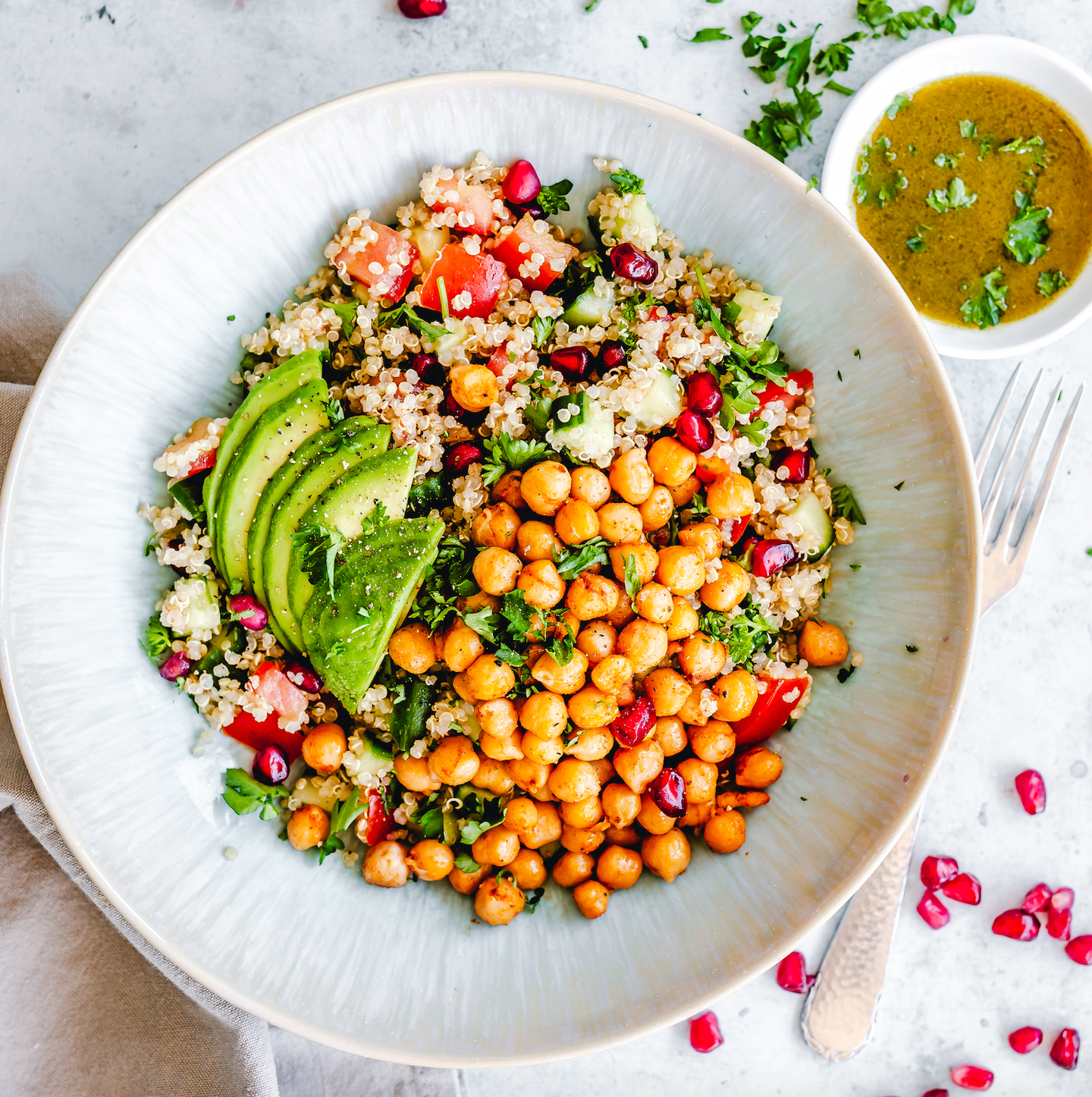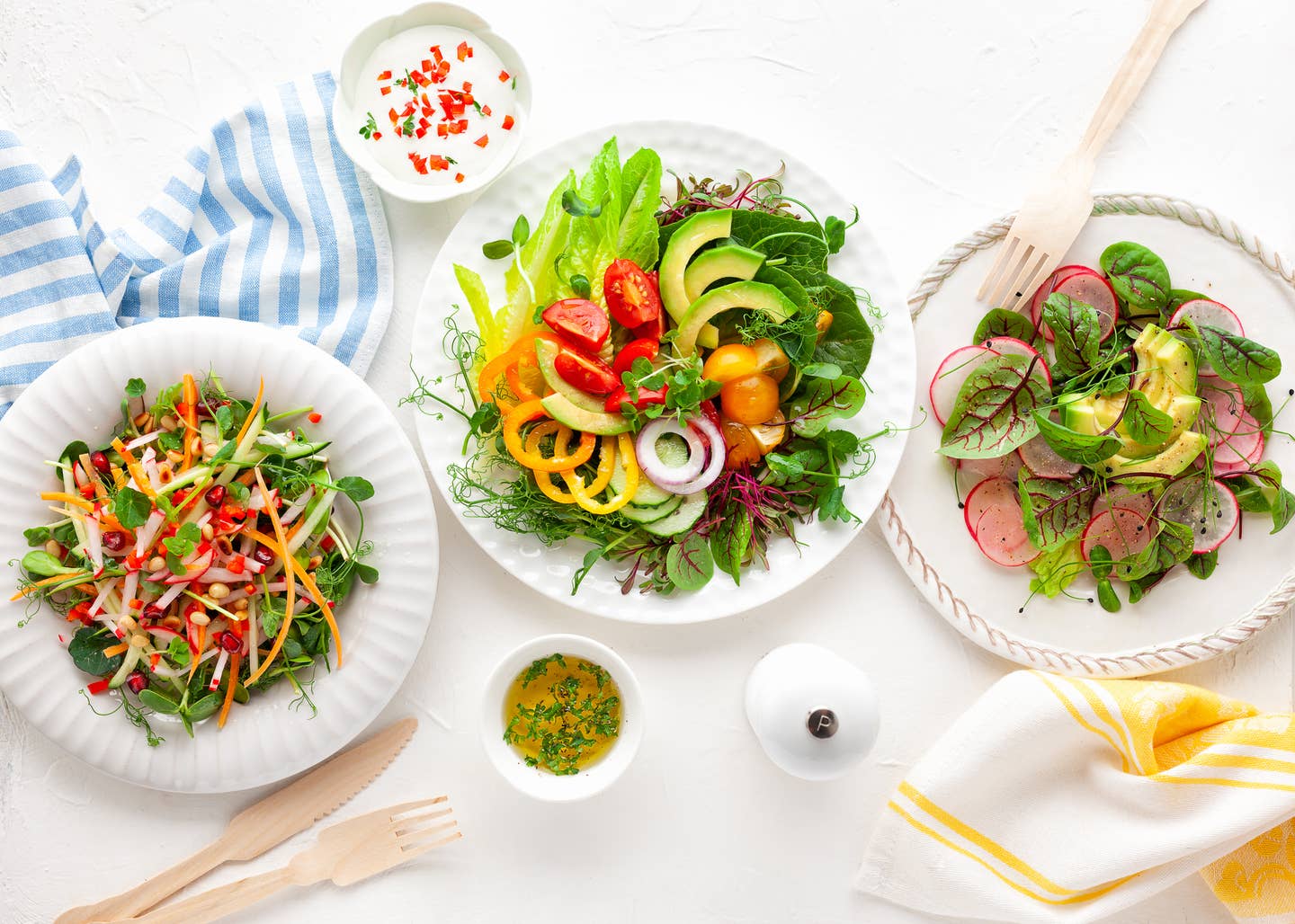
The Top 15 Legumes With the Most Protein
Legumes – including beans and pulses – are the superheroes of a whole-food, plant-based diet because they pack tons of protein in a tiny package. When we went in search of the top-ranking beans and legumes for vegan protein per ounce, we found so many contenders we had to cover them all.
These high-protein plants have gotten humans through some hard times, nutritionally speaking. Now we should load up our plates, make soups and spreads, and welcome these little powerhouses into our lives on a daily basis. Just remember that most legumes require soaking for hours before consuming. So plan ahead. That said, they're worth it for their benefits to your body, health, and tastebuds. Hummus, we always loved you.
The Top 15 Legumes and Beans With the Most Protein
Top 15 Legumes and Beans
1. Soy Beans
Soybeans are a legume but they are such a great source of protein that we had to lead the veggie list with it. There is more protein in just one ounce of soybeans than a cup of sliced avocado! 1 cup equals Protein - 28.6g Calories - 298 Carbs - 17.1g Fiber - 10.3g Calcium - 175mg
2. Lentils
Lentils are the only beans that don't have to be soaked before preparing. Lentils can be the star of any dish that needs heft, from soups to burgers. Next time it's Taco Tuesday, try out lentil tacos—they pack a protein punch. 1 cup equals Protein - 17.9 g Calories - 230 Carbs - 39.9 g Fiber - 15.6 g Calcium - 37.6 mg
3. White Beans
Dried white beans can be stored for up to three years in a dry, room-temperature location. Which means you can keep them around whenever you need a staple for soups or stews. 1 cup equals Protein - 17.4 g Calories - 249 Carbs - 44.9 g Fiber -11.3 g Calcium - 161 mg
4. Edamame
Edamame is a great snack to keep in your freezer. Microwave them and spice them up with a sprinkle of salt, chili powder and red pepper flakes. You'll be enjoying a protein-filled snack that is better than chips. 1 cup (cooked and shelled) equals Protein - 16.9 g Calories - 189 Carbs - 15.8g Fiber - 8.1g Calcium - 97.6mg
5. Cranberry Beans
As you cook cranberry beans, the unique specks of red that give these legumes their name vanish. Boil the cranberry beans, blend into a spread and use as a delicious dip with veggies for a great protein snack. 1 cup equals Protein - 16.5 g Calories - 241 Carbs - 43.3 g Fiber - 15.2 g Calcium - 88.5 mg
6. Split Peas
Don't confuse split peas with green peas. Split peas are dried and—surprise— split. Unlike their sweet cousins, these peas must be boiled for 45 minutes before they're ready to eat. Make Ina Garten's easy Parker's Split Pea Soup for a protein-packed lunch. 1 cup cooked Protein - 16.3 g Calories - 229 Carbs - 41.1 g Fiber - 16.3 g Calcium - 27.4 mg
7. Kidney Beans
Make sure to soak these beans overnight to get rid of the toxic proteins in the raw bean that is harmful to people and animals. then cook thoroughly before eating. Soaking and cooking the beans will get rid of the harmful proteins. Then, dig in! 1 cup equals Protein - 15.3 g Calories - 225 Carbs - 40.4 g Fiber - 13.1 g Calcium - 49.6 mg
8. Black Beans
Black "turtle" bean is the technical name for this crowd favorite. The "turtle" part comes from the physical appearance of the shiny exterior shell that protects the bean. 1 cup equals Protein - 15.2 g Calories - 227 Carbs - 40.8 g Fiber - 15 g Calcium - 46.4 mg
9. Navy Beans
As you can see, navy beans are clearly not navy. So where did the name come from? These beans were such an important part of the U.S. Navy diet in the beginning of the 20th century that the beans were named after them. Anchors aweigh! 1 cup equals Protein - 15 g Calories - 255 Carbs - 47.4 g Calcium - 126 mg
10. Pinto Beans
Canned pinto beans aren't just a source of protein, but also major fiber. Pinto beans are often used as refried beans because they fall apart when steamed. 1 cup equals Protein - 15.4g Calories - 245 Carbs - 44.8g Fiber - 15.4g Calcium - 78.6mg
11. Chickpeas
What's better than hummus for boosting protein? Not much. Just half a cup delivers 10 grams of protein, which is a good percentage of your daily needs: ranging from 45 to 65 grams, depending on weight, gender and activity level. 1 cup equals Protein - 14.5g Calories - 269 Carbs - 45g Fiber - 12.5 g Calcium - 80.4 mg
12. Lima Beans
Lima beans are often called "butter beans" because of their buttery taste. Famously used in succotash, lima beans can also be used boost the taste of a hearty vegetable soup, or roast them with sweet potatoes as a side dish. 1 cup equals Protein - 14.7 g Calories - 216 Carbs - 39.3g Fiber - 13.2g Calcium - 32mg
13. Mung Beans
Mung beans lack a lot of flavor but are great to add to any dish for crunch and protein. Trade your chickpea-based falafel for a mung bean option to switch things up. Fact: Just Eggs uses mung beans for protein! 1 cup equals Protein - 14.2 g Calories - 212 Carbs - 38.7 g Fiber - 15.4 g Calcium - 54.5 mg
14. Fava Beans
Take the fava beans out of the pod since experts don't recommend eating that part. For freshest taste, only separate the beans from the pods when you 're ready to eat them. 1 cup equals Protein - 12.9 g Calories - 185 Carbs - 33.2 g Fiber - 9.18 g Calcium - 61.2 mg
15. Peas
Who knew little old peas pack a major protein punch? One cup of peas has more protein than one average-sized egg. Yep, you can make a bet and win it. 1 cup equals Protein - 8.6g Calories - 134 Carbs - 25g Fiber - 8.8 g Calcium - 43.2 mg
More From The Beet






